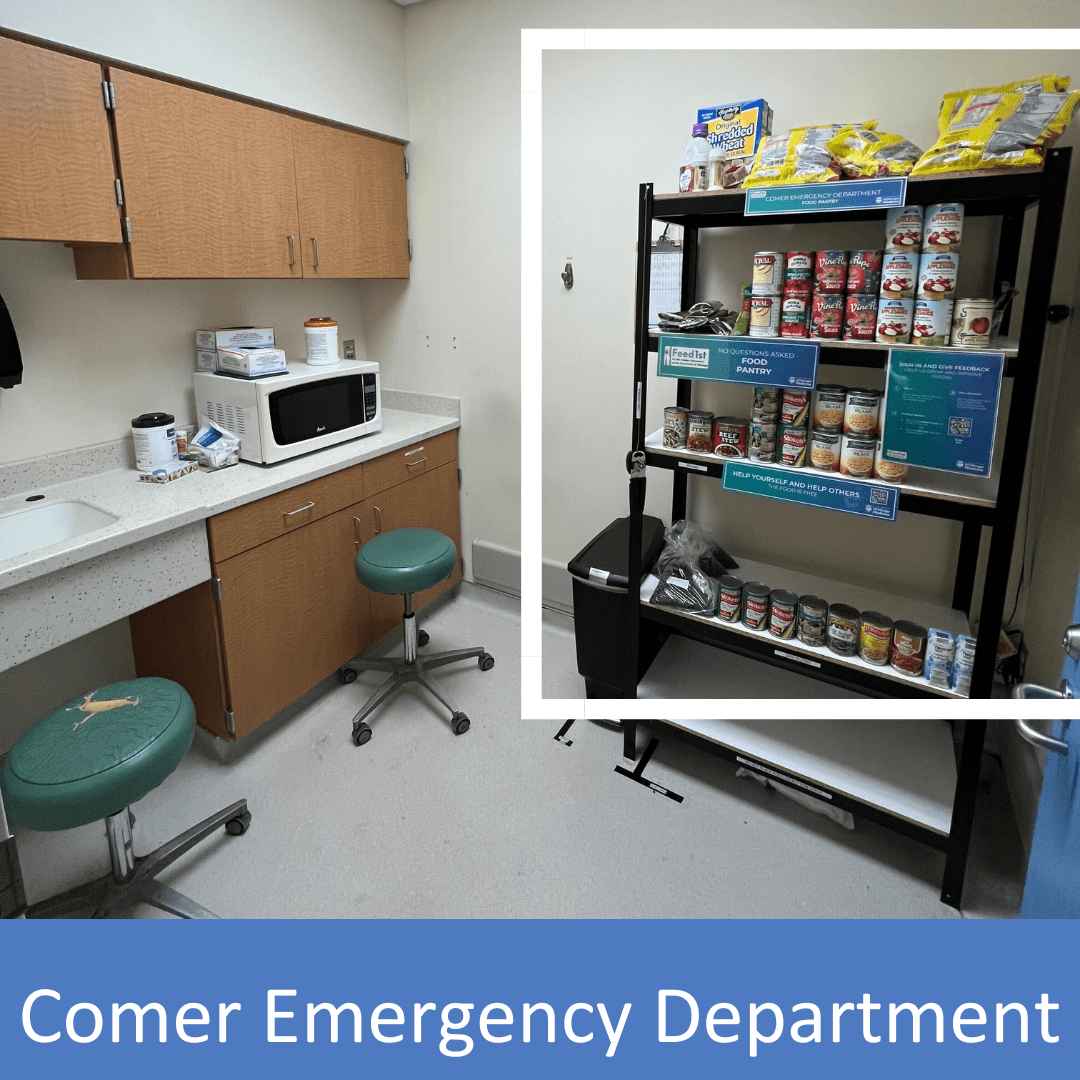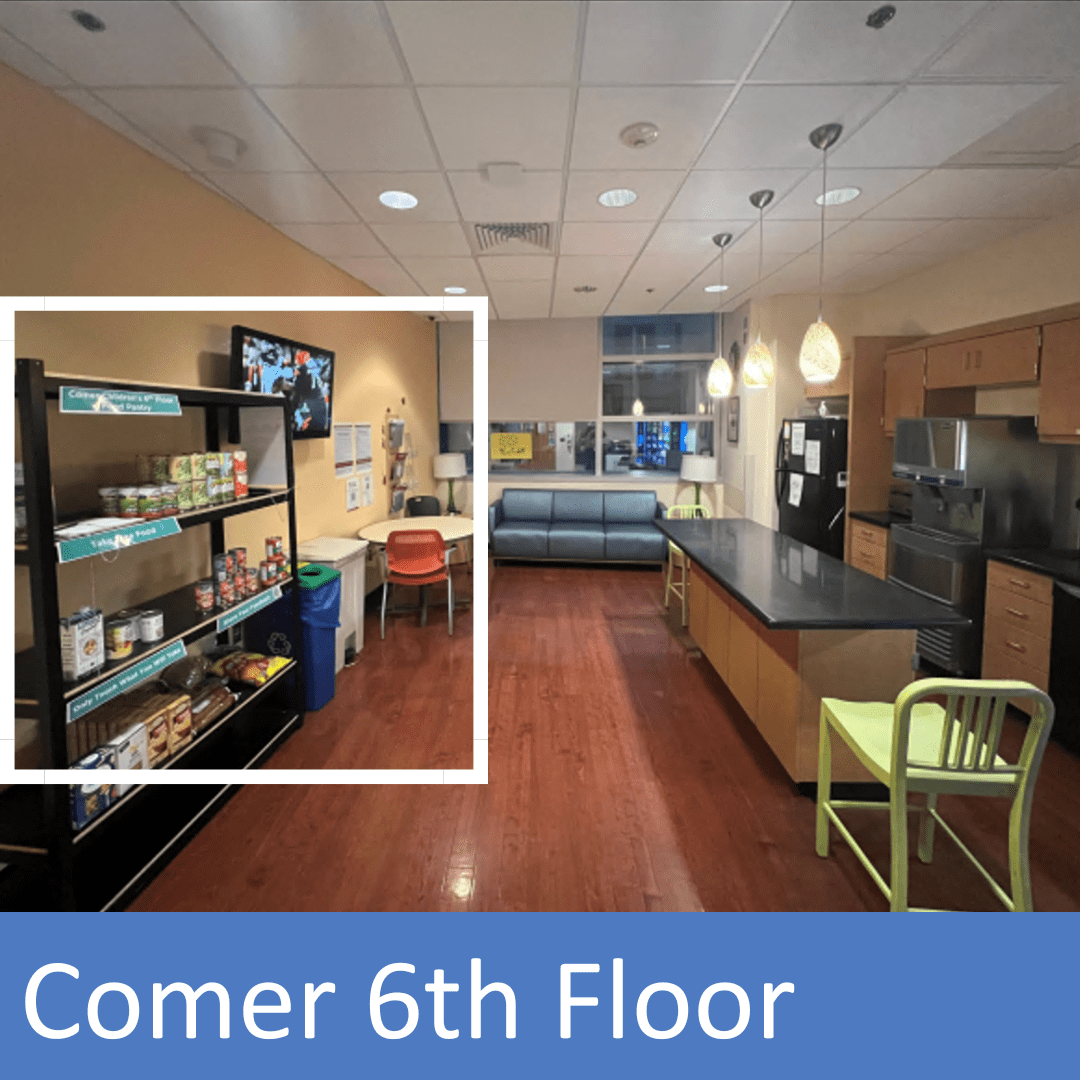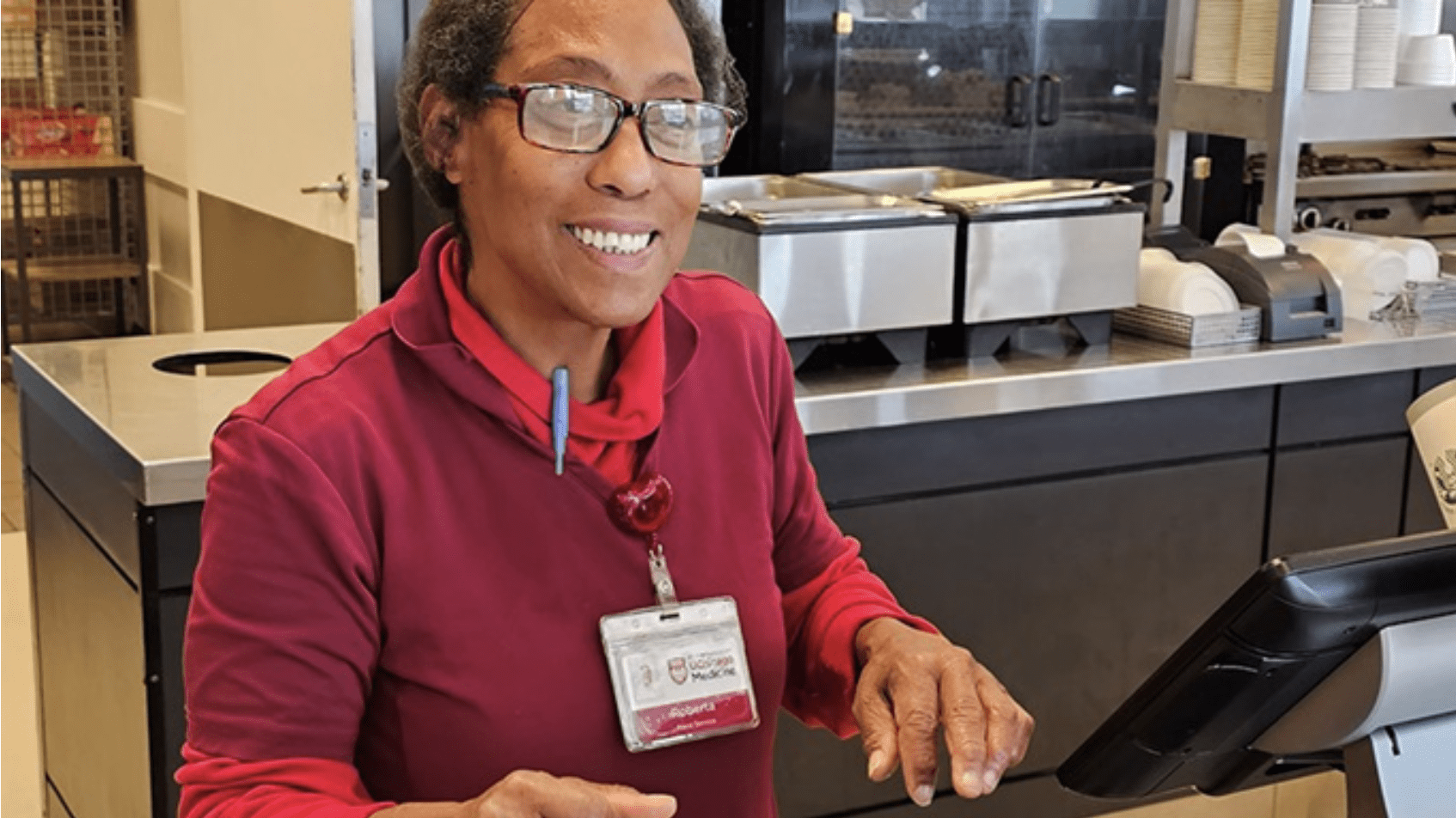Feed1st

Feed1st minimizes stigma and maximizes dignity of people experiencing hunger and food insecurity using an open access 24/7/365, self-serve, no questions asked, everyone included approach. The Feed1st food pantries are available for the entire UCM community to take what they need for themselves or others they know. There are no requirements to receive food, nor are there limits on how much food families may take, making the food pantry welcoming and accessible to anyone in need.
Our Impact
Since 2010, Feed1st has made impacts through…
243,536
pounds of non-perishable food
118,186
individuals served
10,993
11
Fun Fact: Feed1st has distributed 119 tons of food in the last 14 years, which is the same weight as 77% of the Statue of Liberty!
Pantry Locations

Newsletter

FAQ
Why is there a food pantry inside of a hospital?
Food insecurity has been linked to negative health outcomes in both children and adults. Feed1st started in response to evidence from hospital staff suggesting that parents were going hungry at their child’s bedside. The food pantry aims to address the issue of food insecurity experienced by people in the University of Chicago Medicine community.
What is provided?
Who can access Feed1st?
How does my family use Feed1st?
Where does the food come from?
What if I have special dietary needs?
Feed1st Toolkit – 2024 Update!
This downloadable PDF includes expert knowledge and tips on how to successfully launch an open access, self-serve food pantry program in your organization. The first version of this toolkit was developed with support from a grant to the University of Chicago Lindau Laboratory from the American Family Insurance Dreams Foundation. This work was also supported in part by the Arthur Quern Fellowship Program at the University of Chicago School of Social Service Administration Graduate Program in Health Administration and Policy. This work was also supported in part by NIMHD R01MD012630. The content is solely the responsibility of the authors and does not necessarily represent the official views of the National Institutes of Health.
Project News
Feed1st Pritzker Medical
Student Board
Feed1st would not be possible without the support of our Pritzker Medical Student Board. The Board consists of four positions for M1s: President, Quality Assurance Lead, and two Volunteer Coordinators. There is also one M2 advisor who has served on a previous Feed1st Board. The Board is responsible for coordinating all Feed1st volunteers who stock the pantry sites, including other medical students, undergraduates, AmeriCorps volunteers, and other hospital volunteers. They help monitor the volunteers, ensuring that pantry sites are stocked correctly, shift are accurately reported, and the pantry sites are staying clean and safe. Read more about the Feed1st Board and other volunteers here!


















